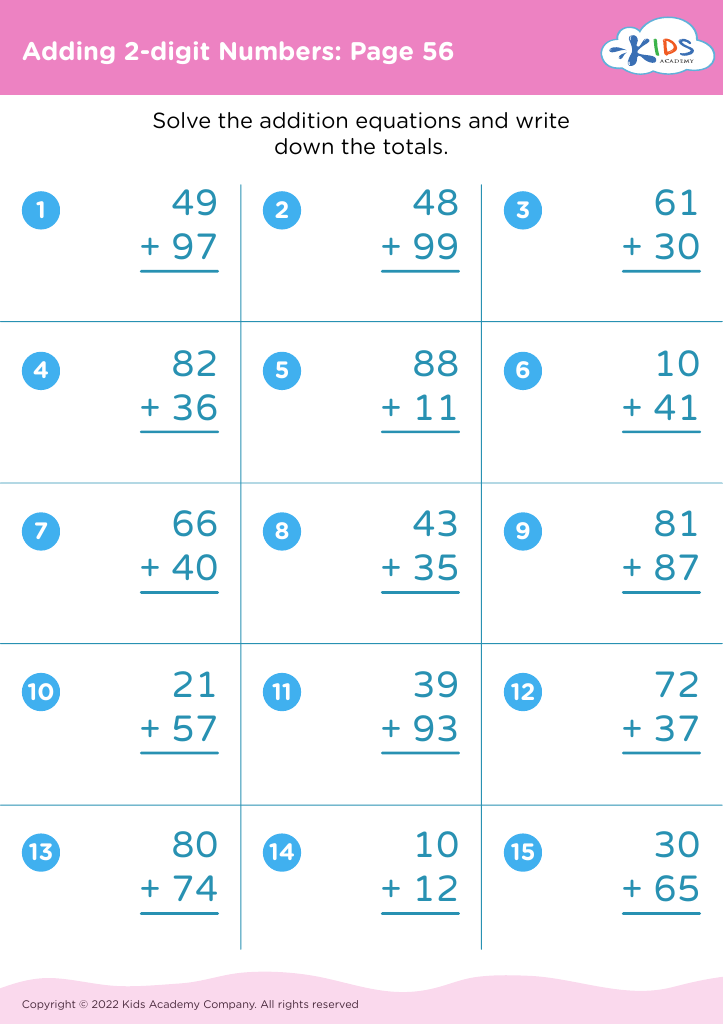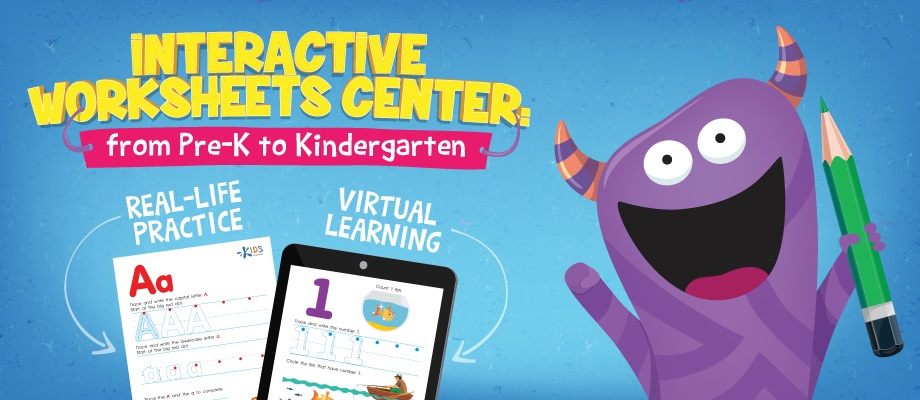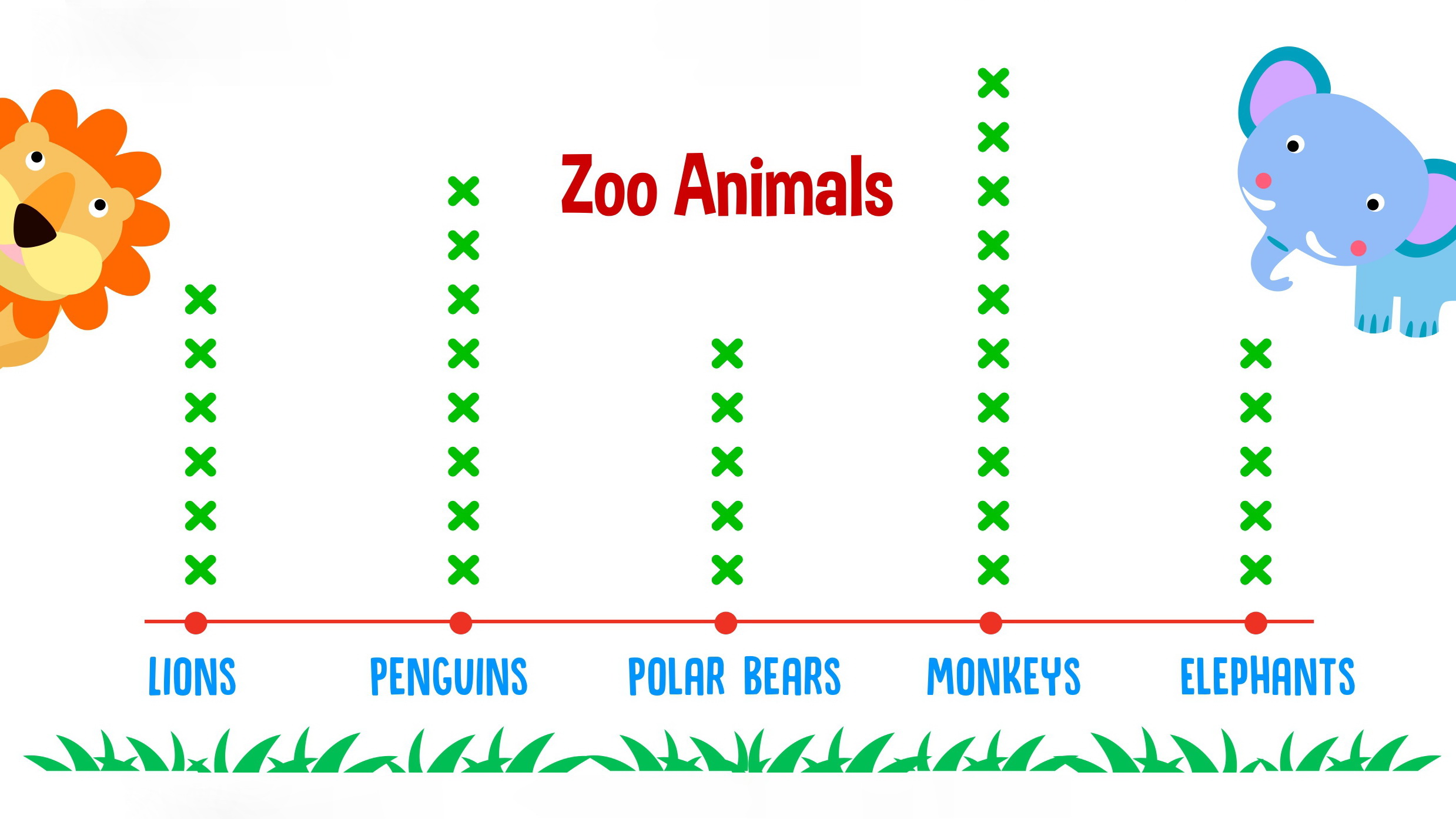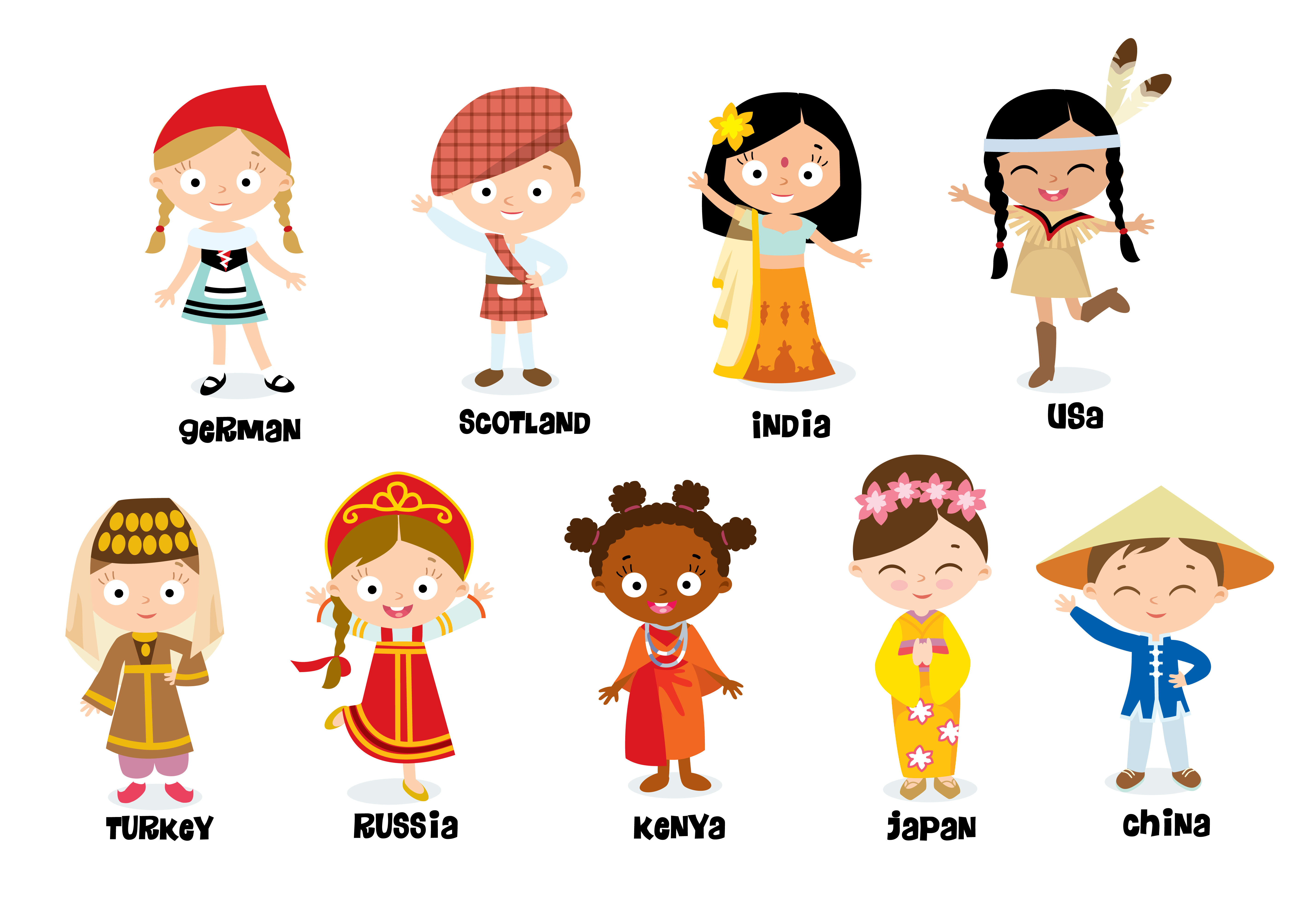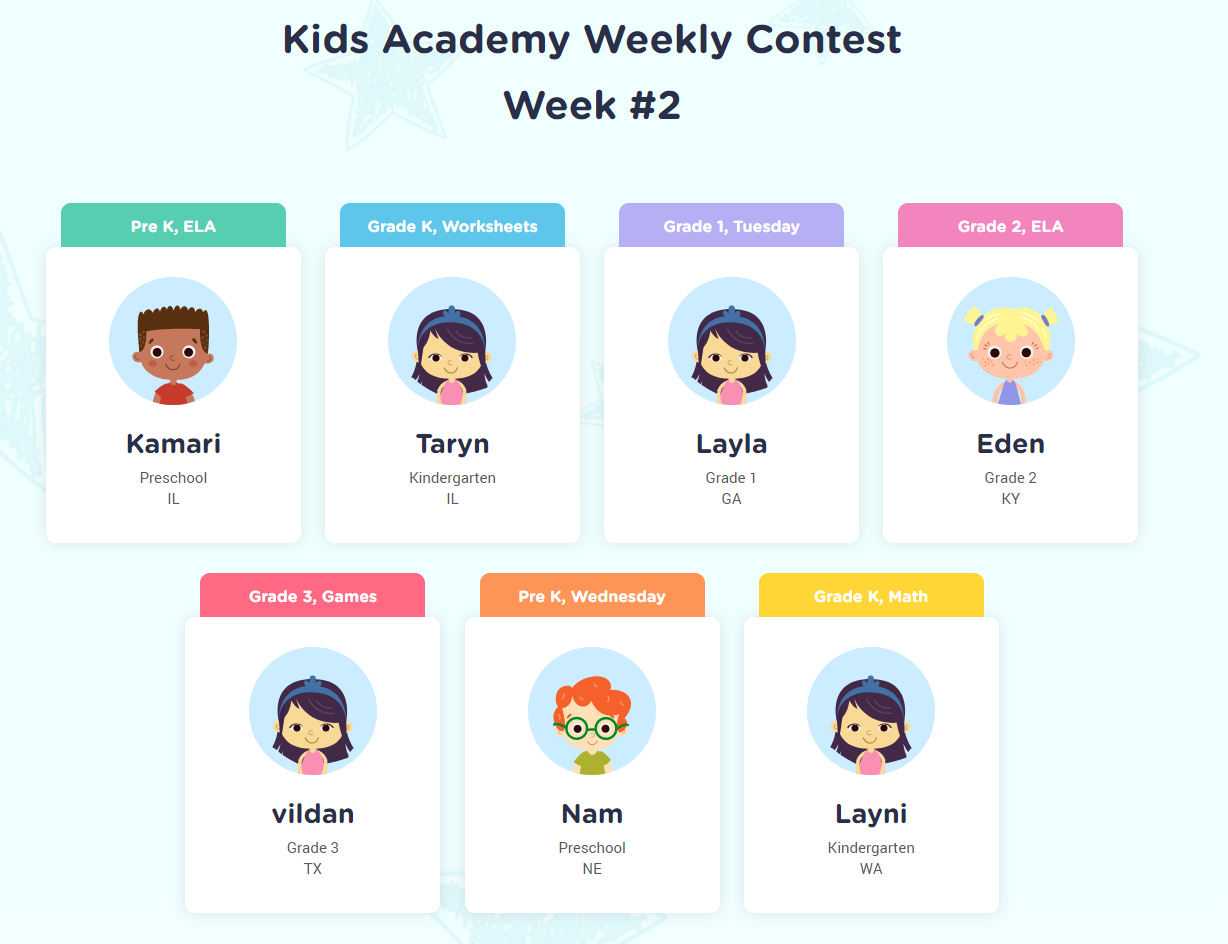Understand sequencing Worksheets for Ages 8-9
3 filtered results
-
From - To
Explore our "Understand Sequencing Worksheets for Ages 8-9" to enhance your child's critical thinking and comprehension skills! These engaging worksheets are specifically designed to help children in this age group grasp the importance of order in narratives and daily routines. By practicing with fun and interactive exercises, kids will learn to identify sequences and organize events logically. Our resources cater to varied learning styles, making it easy for young learners to master sequencing concepts. Encourage your child's cognitive development and boost their learning journey with our thoughtfully crafted worksheets that make mastering sequences enjoyable and effective! Perfect for home or classroom use!
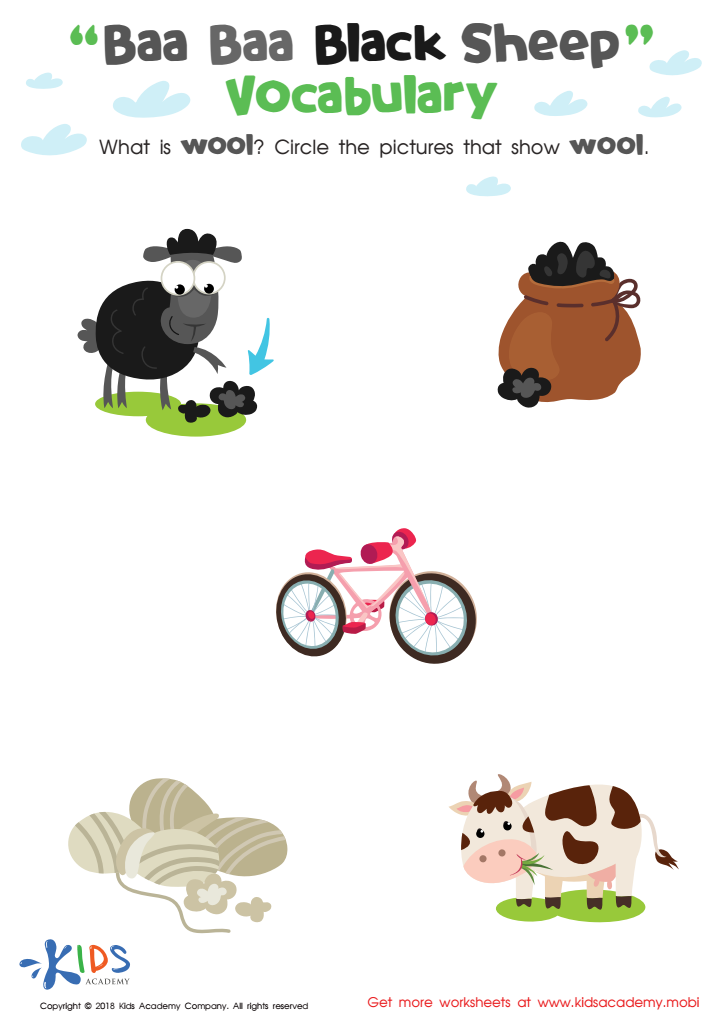

Baa Baa Black Sheep: Vocabulary Worksheet
Understanding sequencing is vital for children aged 8-9 as it lays the groundwork for essential cognitive and academic skills. At this developmental stage, children are not only improving their reading and writing abilities but are also starting to think critically and organize information logically. Sequencing helps them comprehend stories by recognizing the order of events, thereby enhancing their reading comprehension and engagement with texts.
Moreover, sequencing plays a crucial role in math, particularly in problem-solving and understanding operations. It helps children break down multi-step problems into manageable parts, fostering critical thinking skills and enhancing their ability to follow directions or create plans. Additionally, sequencing mitigates confusion and improves memorization, which can lead to heightened academic performance.
Beyond academics, sequencing supports everyday life skills, such as remembering steps in a routine or executing multi-step tasks. Familiarizing children with sequencing nurtures their ability to narrate experiences and contribute effectively to conversations, boosting their communication skills. Therefore, parents and teachers should prioritize sequencing activities to enrich children's educational experiences, paving the way for their overall development. Engaging in such strategies fosters independence, clarity of thought, and effective problem-solving capabilities, invaluable traits as they progress academically and socially.
 Assign to My Students
Assign to My Students

